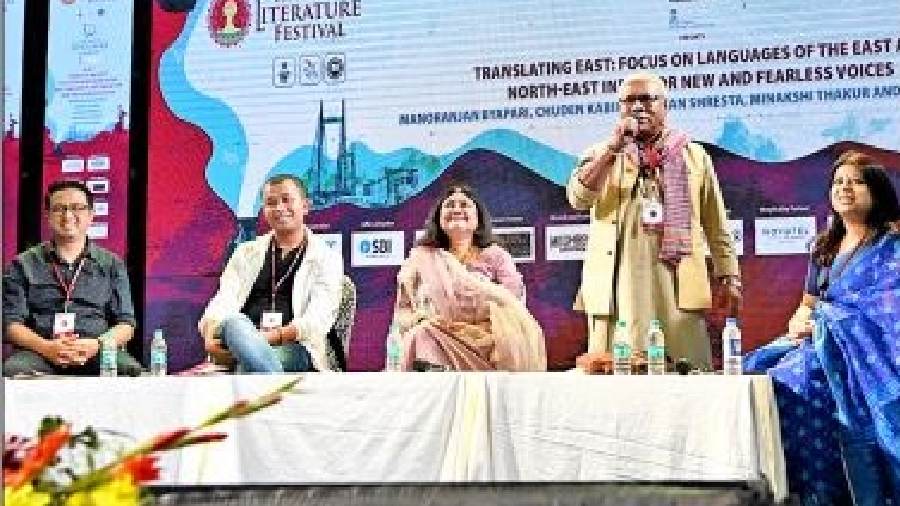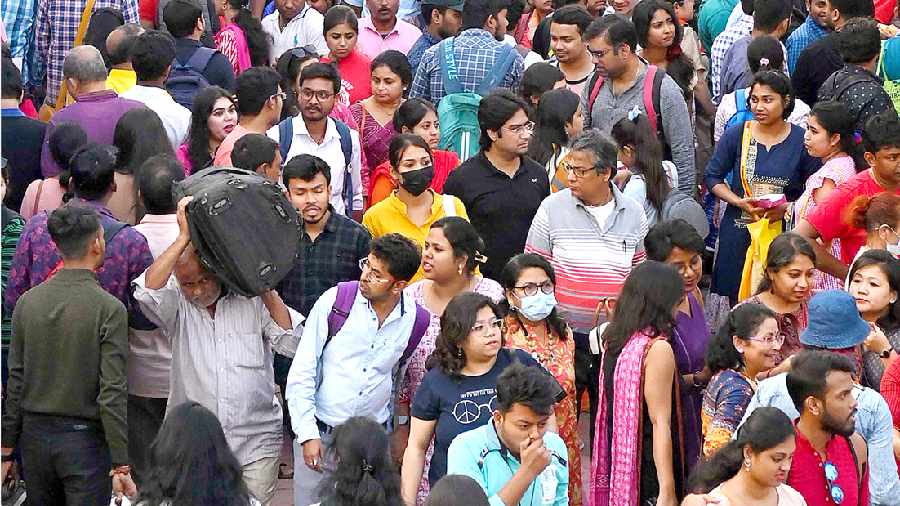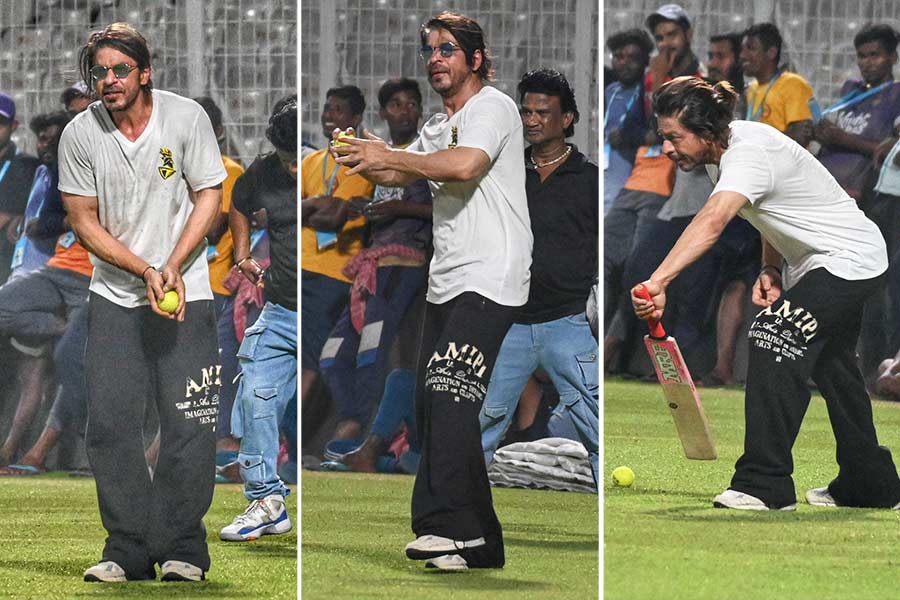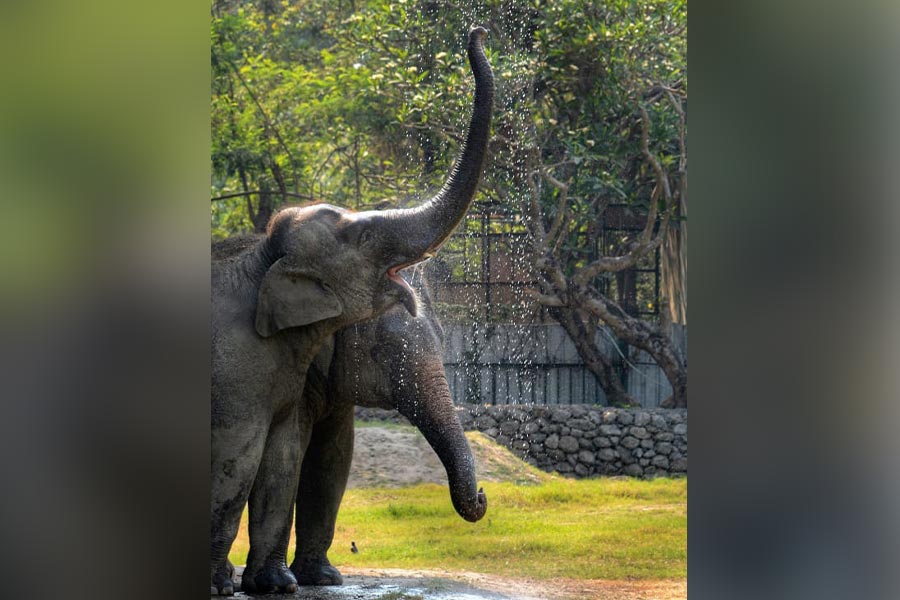A sudden spotlight brought by literary awards has warmed up publishers to regional authors and translation of their works into English, an author-publisher told a literature fest audience at Kolkata Book Fair on Saturday.
“I think more publishers are getting into translations now because suddenly, the spotlight is on translations. It gives me great pleasure to say that all the major awards in the past two-three years have gone to translations from various Indian languages. That is why more publishers are getting into it. It is a good thing. We are growing the market,” Minakshi Thakur, of Westland Books, said at the Kolkata Literature Festival (KLF), held in association with The Telegraph.
Thakur was part of a session titled “Translating East: Focus on Languages of the East and Northeast India for New and Fearless Voices” on the concluding day of the ninth edition of KLF.
Authors Manoranjan Byapari and Chuden Kabimo, publisher-bookseller Raman Shrestha and Thakur discussed the literature produced in these “oft-ignored” regions with publisher Esha Chatterjee.
Chatterjee, who runs BEE Books, asked Thakur how “corporate publishing houses look at translations”.
Thakur, who has worked as a publisher and editor for more than 15 years, said there has been a change in the form of a focus on regional languages.
“Back in the day, original writing in English in India was looking to the West... which has changed now. There are many different voices, more real and more rooted in their context... I think we have to create interest in the English readers for translations because they are extraordinary stories. They are a perfect combination of what is unique and what is universal,” she said.
English translations of Indian books have been under the limelight for the past few years.
Tomb of Sand, the English translation of author Geetanjali Shree’s Hindi novel Ret Samadhi won the International Booker in 2022 — a first for any work in a south Asian language. Shree shared the award with her translator, Daisy Rockwell.
At the KLF session on Saturday, Chatterjee asked Byapari, one of the forerunners of Dalit literature in Bengali, what it was like to see his writing being translated into English and several other languages.
Byapari, 73, has had many identities — refugee, tribal rights activist, rickshaw-puller and a cook, among others — before turning into a full-time writer.
A chance encounter with the renowned Bengali writer Mahasweta Devi initiated him to the process of writing.
He has written over 12 novels and numerous short stories since and won wide recognition and several accolades. In 2021, he was elected to the state Assembly from Balagarh in Hooghly on a Trinamul ticket.
Byapari, who spoke in Bengali, said he never thought of becoming an author.
“Now, when something in my books has managed to attract the attention of readers, when the books are being translated, it is natural to feel good. I am happy for another reason. There was a time when I had to spend money to publish my books. Now, I don’t have to. The publisher has given me enough money to build a two-storeyed pucca house,” he said as the audience broke into a loud cheer.
The other two panelists, Kabimo and Shrestha, are linked by a book on the Gorkhaland movement of the 1980s.
Kabimo is a writer based in Kalimpong. His debut novel, Faatsung (2019), written in Nepali and translated into English as Song of the Soil, is written against the backdrop of the Gorkhaland movement. The English translation was shortlisted for the JCB Prize 2022, the first originally Nepali book to be ever listed for this award.
Shrestha, who runs a popular bookstore called Rachna Books in Gangtok, has published Song of the Soil.
“My journey into publishing started because of my 18 years’ experience as a bookseller. I realised that a lot of research was happening on our land, our people, our culture. But these books were being published abroad. These books ended up being unaffordable and inaccessible to our own people. There was a gap. That got me into publishing,” said Shrestha.
“When I was writing the book, I had no clue it would come this far. I was part of a small Nepali writers’ circle in Darjeeling. I thought that the book might reach small sections of Nepali readers in Assam and some other parts of the Northeast. But once the book came out, the response from readers’ was overwhelming,” said Kabimo.







